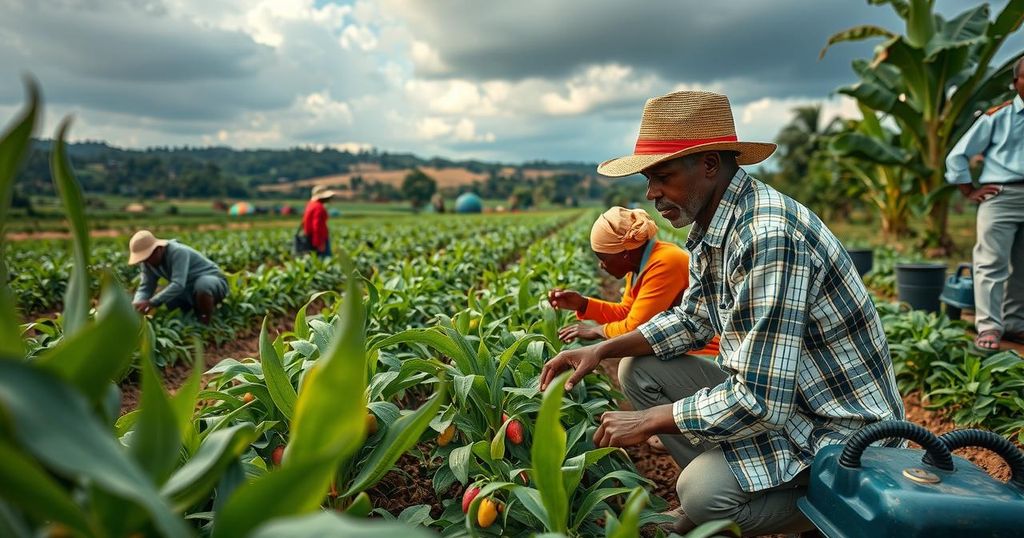Zimbabwean Farmers Reap Benefits from Innovative Maggot Farming
In Zimbabwe’s drought-affected regions, farmers are increasingly adopting maggot farming as an innovative solution to food insecurity and rising costs of animal feed. Utilizing larvae from the black soldier fly, these farmers convert organic waste into valuable protein-rich feed, significantly reducing production costs. Not only does this practice enhance the livelihoods of farmers, but it also contributes positively to waste management and environmental sustainability.
In southeastern Zimbabwe, farmers like Mari Choumumba are transforming their fortunes by undertaking maggot farming, a response to severe drought conditions that have ravaged traditional crops such as corn. Initially met with skepticism, particularly due to health concerns associated with flies, this innovative approach has evolved into a viable means for generating protein-rich chicken feed from black soldier fly larvae. After a year of adapting to this technique, Choumumba now harvests substantial quantities of maggots, significantly reducing her feed costs and creating a livelihood in a region plagued by climate-related challenges. Moreover, her efforts contribute towards recycling organic waste, thus aiding in environmental sustainability.
The agricultural landscape in Zimbabwe has been negatively impacted by climate change, frequent droughts, and subsequent crop failures, particularly affecting staple foods like corn. These challenges have led to increased hunger and economic instability in farming communities. Maggot farming, particularly utilizing larvae from the black soldier fly, presents an innovative solution as these insects thrive in decaying organic matter, converting waste into valuable livestock feed. This practice not only bolsters food security but also enhances waste management by repurposing food scraps. Successful pilot projects and training have emerged, spearheaded by local agricultural experts and international organizations like USAID, showcasing the benefits of this alternative protein source.
The adoption of maggot farming in Zimbabwe represents an innovative response to agricultural challenges posed by climate change and drought. Farmers such as Mari Choumumba are not only mitigating feed costs for poultry but are also recycling organic waste, contributing to environmental sustainability. This transformative practice highlights the resilience and adaptability of agricultural communities in the face of adversity, providing a promising path toward enhanced food security and economic recovery.
Original Source: apnews.com




Post Comment